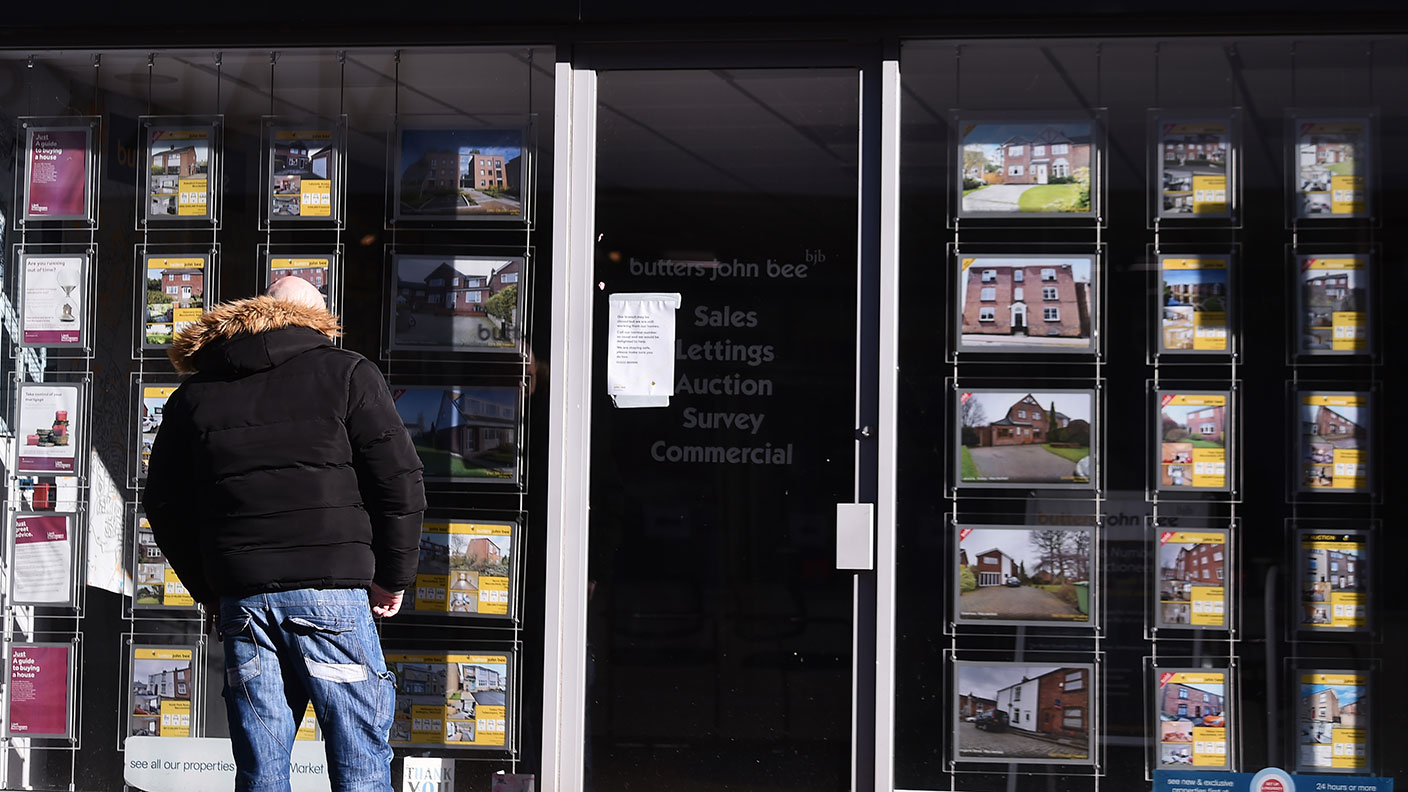Stamp duty holiday extension will keep the house-price party going – for now
The government is to extend to the stamp duty holiday by three months. Good for today’s buyers, says Nicole Garcia Merida, but what happens in June?


Get the latest financial news, insights and expert analysis from our award-winning MoneyWeek team, to help you understand what really matters when it comes to your finances.
You are now subscribed
Your newsletter sign-up was successful
Want to add more newsletters?

Twice daily
MoneyWeek
Get the latest financial news, insights and expert analysis from our award-winning MoneyWeek team, to help you understand what really matters when it comes to your finances.

Four times a week
Look After My Bills
Sign up to our free money-saving newsletter, filled with the latest news and expert advice to help you find the best tips and deals for managing your bills. Start saving today!
The government is preparing to announce a three month extension to the stamp duty holiday, originally meant to end on 31 March, as Rishi Sunak attempts to keep the property market growing.
Sunak will use his Budget next week to announce the change of the deadline to the end of June, says a report in The Times. If the rumours are true, an additional 300,000 property transactions could get through in England, based on previous HMRC data, says property website Rightmove. That would save buyers around £1.75bn in total. Around 80% of the 628,000 sales agreed but still currently in the legal process would pay no stamp duty.
The chancellor was under pressure by the industry to extend the stamp duty holiday, with the Building Societies Association (BSA) calling on him to taper the end of the reduction in the tax to allow those who were already in the process of buying to benefit from it. The third lockdown and an “unprecedented increase” in the number of transactions had led to increased delays in the buying process, says the BSA: “These transactions are at risk of falling through and chains collapsing, leading to disruption in the housing market and causing economic uncertainty at the time when we hope the wider economy will begin to pick up.”
MoneyWeek
Subscribe to MoneyWeek today and get your first six magazine issues absolutely FREE

Sign up to Money Morning
Don't miss the latest investment and personal finances news, market analysis, plus money-saving tips with our free twice-daily newsletter
Don't miss the latest investment and personal finances news, market analysis, plus money-saving tips with our free twice-daily newsletter
The Office for Budget Responsibility predicted the housing market could face a cliff edge if the holiday came to an end on 31 March, adding house prices could drop by over 8% this year.
The extension could cost the Treasury about £1bn, says Capital Economics. And while It would prevent sales from tumbling after April, it doesn’t necessarily encourage new activity as “conveyancing delays” wouldn’t allow new transactions to take place. There’s currently a four-month gap between an offer being accepted and exchanging.
The extension could be a good thing for those who bought a house in December and were concerned they wouldn’t be able to exchange before the end of March. But, as we’ve said before, the stamp duty holiday is not necessarily saving buyers any money. And as Paul Johnson, head of the Institute of Fiscal Studies, pointed out to The Times, by extending the stamp duty holiday the government is increasing the likelihood of people expecting it to become permanent. “Whenever it’s withdrawn you risk a period of stagnation and overblown house prices as you get towards the end.”
Get the latest financial news, insights and expert analysis from our award-winning MoneyWeek team, to help you understand what really matters when it comes to your finances.
Nic studied for a BA in journalism at Cardiff University, and has an MA in magazine journalism from City University. She has previously worked for MoneyWeek.
-
 Should you buy an active ETF?
Should you buy an active ETF?ETFs are often mischaracterised as passive products, but they can be a convenient way to add active management to your portfolio
-
 Power up your pension before 5 April – easy ways to save before the tax year end
Power up your pension before 5 April – easy ways to save before the tax year endWith the end of the tax year looming, pension savers currently have a window to review and maximise what’s going into their retirement funds – we look at how
-
 What are wealth taxes and would they work in Britain?
What are wealth taxes and would they work in Britain?The Treasury is short of cash and mulling over how it can get its hands on more money to plug the gap. Could wealth taxes do the trick?
-
 Halifax: House price slump continues as prices slide for the sixth consecutive month
Halifax: House price slump continues as prices slide for the sixth consecutive monthUK house prices fell again in September as buyers returned, but the slowdown was not as fast as anticipated, latest Halifax data shows. Where are house prices falling the most?
-
 Rents hit a record high - but is the opportunity for buy-to-let investors still strong?
Rents hit a record high - but is the opportunity for buy-to-let investors still strong?UK rent prices have hit a record high with the average hitting over £1,200 a month says Rightmove. Are there still opportunities in buy-to-let?
-
 Where to find the best returns from student accommodation
Where to find the best returns from student accommodationStudent accommodation can be a lucrative investment if you know where to look.
-
 Revealed: the cheapest cities to own a home in Britain
Revealed: the cheapest cities to own a home in BritainNew research reveals the cheapest cities to own a home, taking account of mortgage payments, utility bills and council tax
-
 Buy-to-let returns fall 59% amid higher mortgage rates
Buy-to-let returns fall 59% amid higher mortgage ratesBuy-to-let returns are slumping as the cost of borrowing spirals.
-
 North outperforming the South for property investors
North outperforming the South for property investorsThe property market in the North of England is outperforming the South for both capital appreciation and rental yields.
-
 UK house prices: half of sellers cut asking prices to secure a sale
UK house prices: half of sellers cut asking prices to secure a saleProperty price reductions have reached their highest level in at least nine years.
